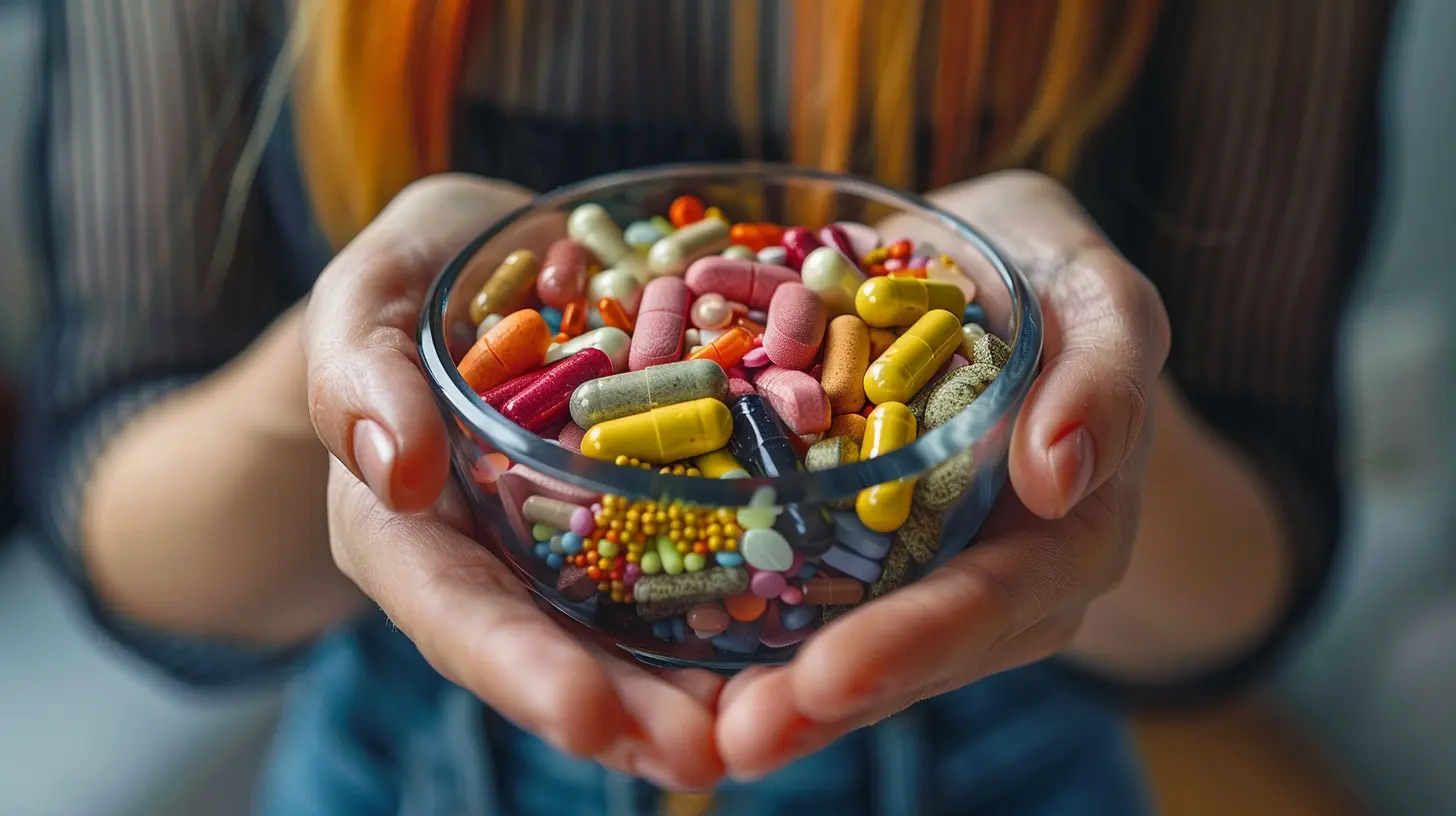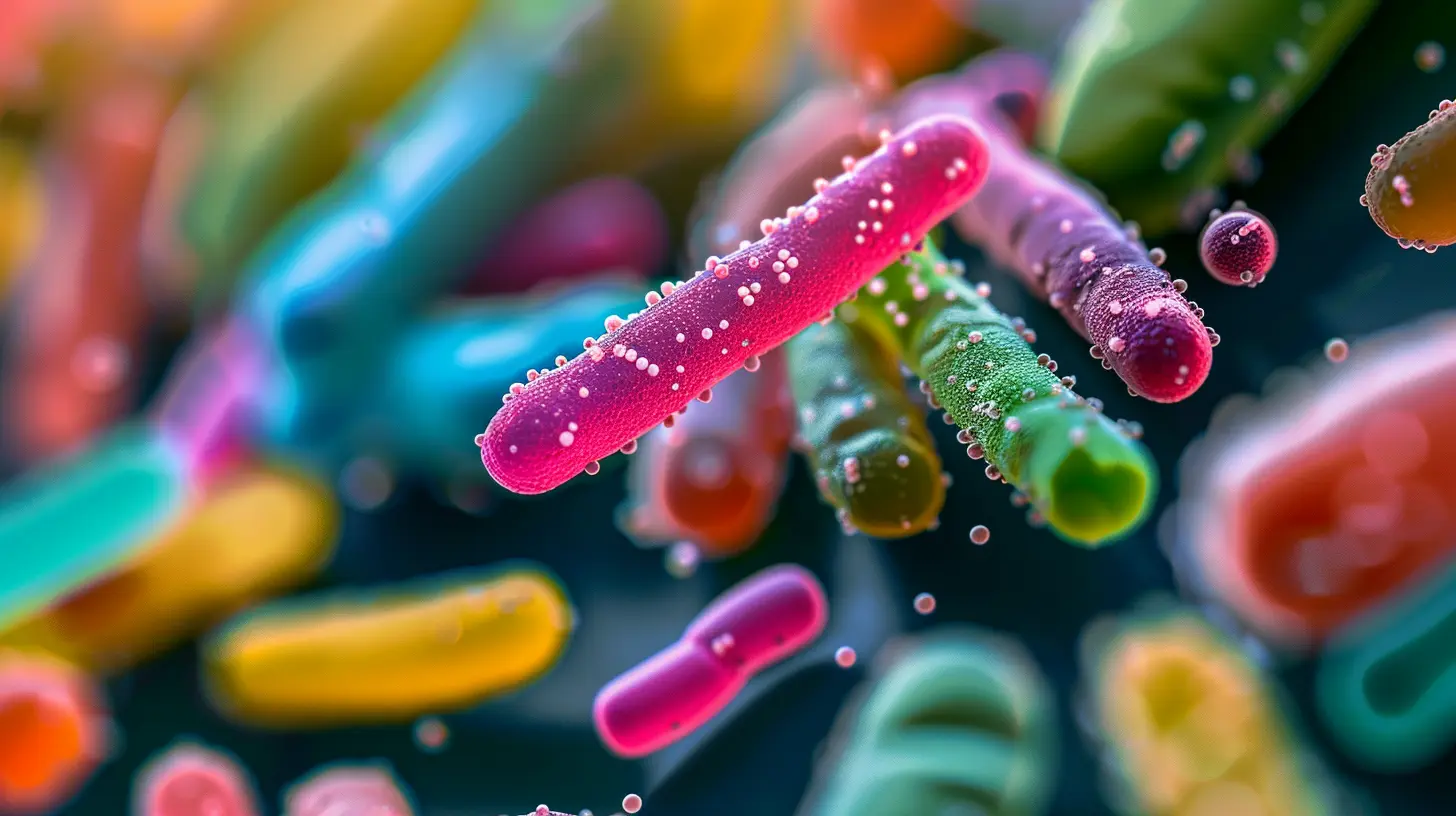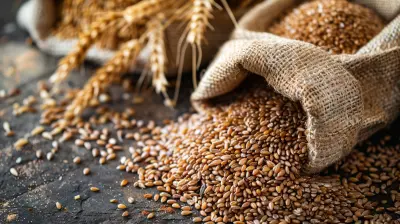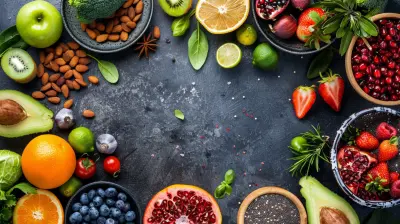The Role of Probiotics in Pediatric Gut Health
31 October 2025
Let’s talk about something that might not get the limelight at your typical dinner table, but plays a massive role in your child's health—gut health. More specifically, the starring role that probiotics play when it comes to pediatric gut health. If you’ve ever wondered whether those tiny bacteria in yogurt ads are worth the hype, or if “gut flora” sounds like a garden you don’t know how to tend, you’re in the right place!
So, grab a cup of tea (or maybe a juice box if you're reading this with your kiddo), and let’s dig into the wonderful, wiggly world of probiotics and how they help keep our little ones healthy and happy from the inside out.
What Are Probiotics, Anyway?
First thing’s first—what exactly are probiotics? Well, in simple terms, probiotics are friendly bacteria. Yep, bacteria can be friends too! These are the good guys that live in your gut and help keep things running smoothly.Imagine your child’s digestive system as a bustling city. Probiotics are like the clean-up crew, security guards, and helpful neighbors all rolled into one. Without them, things can get chaotic—think traffic jams (hello constipation), unwanted guests (bad bacteria), and delayed deliveries (nutrient absorption problems).
In the world of science, probiotics are defined as “live microorganisms which, when administered in adequate amounts, confer a health benefit on the host.” In this case, the “host” is your child—and yes, that’s a fancy way of saying probiotics are live little bugs that make your kid healthier.
Why Is Gut Health So Important for Kids?
You might be thinking, "Okay, probiotics sound cool, but why do I need to worry about my child’s gut health?"Great question!
Your child’s gut is like mission control for a lot of important body functions. It breaks down food, absorbs nutrients, supports the immune system, and even communicates with the brain. In fact, some scientists call the gut the “second brain” because it has such a big influence on mood and behavior. Trust your gut? Yeah, that's not just a saying—it’s biology.
When the gut is out of balance, your child might experience:
- Frequent tummy troubles (think bloating, gas, or diarrhea)
- Weakened immunity (more sniffles in daycare)
- Skin issues like eczema
- Trouble concentrating or unexplained mood swings
Having a healthy gut can set the foundation for a lifetime of wellness. And that’s where probiotics step in to save the day.
How Probiotics Support Pediatric Gut Health
So, what exactly do these microscopic superheroes do for your child’s gut? A whole lot, actually:1. They Maintain Balance
Your child's gut is home to trillions (yes, TRILLIONS) of bacteria. Probiotics help maintain the right balance between good and bad bacteria. Think of it like a see-saw—probiotics keep both sides from tipping too far.2. They Aid Digestion
Probiotics produce enzymes that help break down food, making it easier for your child to digest meals and absorb essential nutrients like calcium, iron, and vitamins.3. They Strengthen the Immune System
Did you know that around 70% of the immune system lives in the gut? When probiotics are in full swing, they boost immune defense by outnumbering harmful invaders and training the immune cells for action.4. They Help with Diarrhea and Constipation
If you've experienced the all-too-common daycare diarrhea outbreak (yikes), you'll appreciate this: probiotics have been shown to reduce the severity and duration of diarrhea, particularly when it’s caused by infections or antibiotics. Some strains also help ease constipation by promoting regular bowel movements.5. They Might Even Improve Mood and Behavior
The gut-brain connection is real! Some studies suggest that probiotics can have positive effects on mood and behavior. Less anxiety, better sleep, and improved focus? That’s something every parent can get behind.
When Should Kids Take Probiotics?
Alright, so we know probiotics are pretty awesome—but when should you start giving them to your child?Newborns and Infants
Believe it or not, gut health starts at birth. Babies inherit beneficial bacteria from their mother during delivery (especially in vaginal births) and breastfeeding. But sometimes, that initial balance needs a little extra help, especially if:- The baby was born via C-section
- The baby was given antibiotics
- There’s a lot of colic or persistent gas
Specific probiotic strains have been shown to reduce colic and promote a more comfortable digestive experience for infants.
Toddlers and Young Kids
This age group is all about exploring the world, and let’s be real—sometimes that means licking the floor or eating crayons. Their digestive systems can use some backup!Probiotics come in kid-friendly forms like chewable tablets, powders, and even gummies. You’ll want to look for strains that support immune function and digestion.
During and After Antibiotics
If your child is on antibiotics, it’s a good idea to include probiotics to help restore the balance of good bacteria that antibiotics often wipe out. Just make sure to space them a couple of hours apart, so the probiotics actually survive.During Allergy Season
If your child struggles with allergies, eczema, or asthma, some probiotics may help modulate the immune response and reduce inflammation. While they’re not a cure-all, they can be a helpful tool in your allergy-fighting toolbox.Best Food Sources of Probiotics for Kids
Not all probiotics have to come from a bottle. Some delicious foods are packed with naturally occurring probiotics that kids actually enjoy (yes, even picky eaters!).Here are a few probiotic-rich foods worth trying:
- Yogurt (look for “live and active cultures” on the label)
- Kefir (a tangy fermented milk drink)
- Sauerkraut (okay, this may be a stretch with kids, but worth the try!)
- Pickles (fermented in saltwater, not vinegar)
- Miso (great in soups!)
- Tempeh (a protein-rich fermented soy product)
Pro tip: Pair probiotic-rich foods with prebiotics (that’s the food probiotics love to eat) like bananas, oats, garlic, and apples to give those good bugs a boost.
Choosing the Right Probiotic Supplement for Your Child
The supplement aisle can be overwhelming, especially when the bottles start throwing around big words like "Lactobacillus" and "Bifidobacterium." Here’s how to simplify your search:1. Pick the Right Strain
Different strains offer different benefits. Some popular, well-researched strains for kids include:- Lactobacillus rhamnosus GG – great for diarrhea and immune support
- Bifidobacterium infantis – helpful for infant gut balance
- Lactobacillus reuteri – may reduce colic and improve digestion
2. Check the CFU Count
CFU stands for “colony-forming units,” and it tells you how many live bacteria are in each dose. For kids, a range between 1 billion to 10 billion CFUs is typically effective.3. Look for Third-Party Testing
Because probiotic quality can vary, look for products that are third-party tested for safety and potency.4. Make It Kid-Friendly
Let’s face it—if it doesn’t taste good or is hard to take, your child isn’t going to want it. Thankfully, there are liquid drops, gummies, powders for mixing into drinks, and even chocolate chews!Are Probiotics Safe for Kids?
In general, yes—probiotics are considered safe for healthy children. But like anything new, it’s best to check with your pediatrician first, especially if your child has a chronic illness or a weakened immune system.Some kids may have mild symptoms like gas or bloating for a few days after starting probiotics. That’s just their gut adjusting to the new roommates!
Tips for Supporting Gut Health Beyond Probiotics
While probiotics are a fantastic tool, they’re just one piece of the gut health puzzle. Here are a few more simple (and fun!) ways to promote a happy tummy at home:- Encourage a fiber-rich diet with fruits, veggies, and whole grains
- Limit processed foods and sugar, which can feed the “bad” bacteria
- Stay hydrated — water helps the gut do its job
- Get moving! Physical activity improves digestion and overall health
- Manage stress — yes, even kids feel stress, and it impacts gut health
Final Thoughts: Tiny Bugs, Big Impact
Who knew that such tiny microorganisms could have such a massive impact on your child’s health? From better digestion and fewer sick days to potentially happier moods and better focus, probiotics are proving they deserve a front-row seat in pediatric wellness.Whether through yummy foods, child-approved supplements, or both, making probiotics a part of your child’s routine can support them from diaper days all the way to school years—and beyond.
So go ahead, give those good bugs a chance to shine. Your child’s gut (and probably their mood and immune system) will thank you.
all images in this post were generated using AI tools
Category:
Pediatric HealthAuthor:

Arthur McKeever
Discussion
rate this article
1 comments
Matilda McTiernan
Great insights on probiotics for children's gut health!
November 5, 2025 at 5:27 AM

Arthur McKeever
Thank you! I'm glad you found the insights helpful for understanding probiotics and children's gut health.


